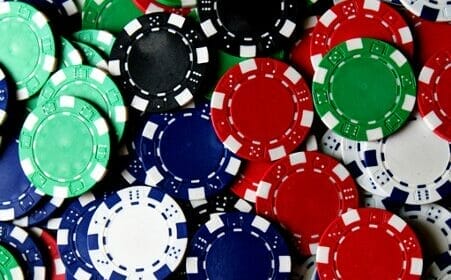Double joy for Pozzo's Italy

- Italy defeated Hungary in the FIFA World Cup Final on this day in 1938
- Gli Azzurri became the first nation to retain the Trophy
- Italy defeated hosts France and Brazil en-route to the Final
Four years on from becoming kings of the sport on home soil, Italy mounted a commanding defence of their crown at the 1938 FIFA World Cup France™. Though Brazil, spearheaded by Leonidas, had emerged as a force to be reckoned with, it was a tournament dominated once more by European teams.
With FIFA having yet to introduce the rule preventing the same continent from hosting consecutive FIFA World Cups, France beat off the challenge of Argentina to be named hosts in August 1936. The decision was made in tribute to the work of Jules Rimet, 33 years the FIFA President and the competition’s founding father.
Unlike Uruguay and Italy before them, the French fell short in their bid to win the Trophy in front of their own fans, with Gli Azzurri beating them in the last eight en route to a date with Hungary in the Final. FIFA.com relives the events that led up to the decider and the match itself, played out in front of a 45,000 crowd at the Stade Olympique Yves-du-Manoir, situated in the Parisian suburb of Colombes.
The stakes
Thirty-six sides entered the qualifying competition, although only 26 of them actually took part in it. Among the absentees were Spain, embroiled in a civil war; England, who were still refusing to take part in the event; and Argentina and Uruguay, both of whom pulled out for differing reasons. For the first time, both the hosts and the holders qualified automatically for the tournament.
A total of 14 other countries earned the right to join them in France, 12 of them European teams. Absorbed by the Anschluss, Austria pulled out before the competition kicked off, however, with their best players representing Germany instead. Brazil were the only South American side on show, while Cuba represented what is now the Concacaf Zone. Completing the field were Dutch East Indies (modern-day Indonesia), the first Asians to participate in the world finals.
Vittorio Pozzo’s Italy side were the big favourites. The defending world champions had won Olympic gold in Berlin two years previously and arrived in France unbeaten in 18 matches. A tightly knit and accomplished side, they also had the inspiration of the legendary trio formed by Giovanni Ferrari, Giuseppe Meazza and Silvio Piola to draw on.
Though they began slowly, labouring to a 2-1 win over Norway in extra time, La Nazionale hit their stride against quarter-final opponents France, Piola scoring two second-half goals in a 3-1 victory. A 2-1 defeat of Brazil then took them through to the Final.
Hungary were no less impressive. Opening up with a 6-0 rout of Dutch East Indies, Alfred Schaffer’s side scored two goals without reply to end the challenge of Switzerland, who had knocked out the Germans in Round 1. That was the prelude to a magnificent 5-1 demolition of Sweden in the semis, a result that took their goal haul to 13 in only three games.
The story
The tournament showpiece provided a sharp contrast between Hungary’s technical and elegantly precise brand of football and Italy’s faster and more direct style, one that depended heavily on their individual gifts. Expressing their distaste of Benito Mussolini’s regime and the straight-arm salutes of the Italy players, the Parisian crowd gave their wholehearted support to the Hungarians. Undeterred, the wily Pozzo used their hostility to spur on his players, who began the game at a typically sprightly pace.
Gli Azzurri were rewarded for their early domination when, after only six minutes, Gino Colaussi took advantage of some negligent Hungarian defending to put them ahead. Though Pal Titkos pulled the Magyars level almost immediately, Italy’s superiority gradually began to tell. With Meazza directing operations, the holders snuffed out what little threat the Hungarians continued to pose up front and showed their own potency in front of goal. Further strikes from Piola and Colaussi gave them a commanding 3-1 lead at the interval, by which time they had even managed to win over the crowd with their all-action play.
As Italy eased off in the second half, Hungary managed to cut the deficit with 20 minutes remaining, the goal coming from the great Ferencvaros forward Gyorgy Sarosi, the scorer of an improbable 351 goals in 382 matches. The men in blue were not to be denied, however, and Piola rounded off the afternoon’s scoring with his second eight minutes from time. Villains at the start of the day, the victorious Italians lifted the Trophy to popular acclaim, their status as worthy champions contested by no-one.
The star
The scorer of 364 career goals, well clear of Giuseppe Meazza’s 338, Silvio Piola is the most prolific Italian marksman in history. No fewer than 274 of those goals came in Serie A, and a further 30 in 34 international appearances. Although Brazil’s Leonidas was the top scorer at France 1938 with seven goals, the Lazio legend was his team’s deadliest finisher, hitting five goals in total, all of them decisive.
The first was an extra-time winner against Norway in Round 1. In the quarter-finals, he scored two more as Italy quashed France’s hopes, before popping up in the Final with another brace, one of them a classy volley.
Piola retired from international football at the age of 38. By the end of his lengthy club career, which stretched over 24 seasons, he had chalked up 537 games, a tally only bettered by Dino Zoff and Paolo Maldini. He died on 4 October 1996.
What they said
“They win everything, these blessed Italians,” France President Albert Lebrun.
“I may have let in four goals, but at least I saved the lives of 11 men,” Hungary goalkeeper Antal Szabo refers to the telegram Mussolini sent to the Italy team before the Final, which contained the words ‘Win or die’.
What happened next
With the second world war breaking out in 1939, it world be 12 long years before the next FIFA World Cup was staged. The 1942 competition had been scheduled to take place in Brazil or Germany, and when the tournament returned in 1950 it was the South American country that earned the right to stage it. By then, however, much would change for the two 1938 finalists. Italy failed to advance beyond the group phase, while the Hungarians did not even qualify.








